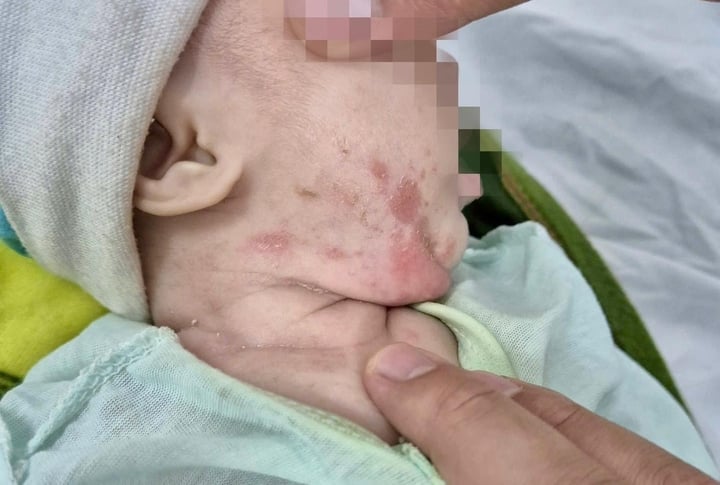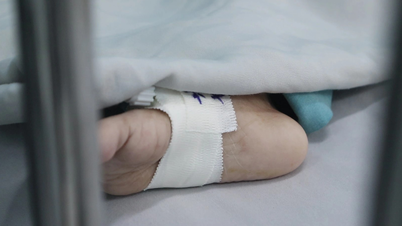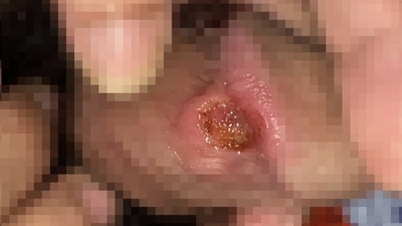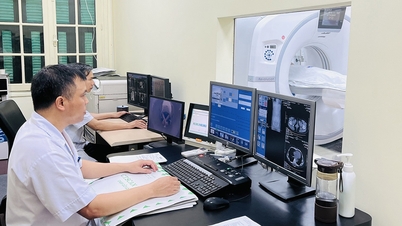About 3 weeks before being admitted to the hospital, a 2-month-old girl of Mong ethnicity in Van Chan, Yen Bai province, developed a red rash scattered on her buttocks. The rash then progressed into patches, blisters, and spread to her legs, arms, and neck.
The family took the child to a private clinic, where he was diagnosed with dermatitis, given medication and bathed in green tea for 2 days, but the condition did not improve.
The disease continued to worsen, the blisters burst, and yellow fluid mixed with blood flowed out. The following days, the child had a high fever of 38°C, was fussy, and the family took the child to a medical facility for examination. The results of the examination and tests here showed that the child had congenital syphilis and severe anemia.

The rash on a 2-month-old baby's body is caused by congenital syphilis. (Photo: BVCC)
The child was transferred to the Central Hospital for Tropical Diseases in a state of malnutrition, severe anemia, high fever with blister-like skin lesions on the limbs and trunk.
The child was treated with emergency antibiotics for 2 weeks according to the Ministry of Health 's protocol, combined with blood transfusion to improve anemia and intensive care and nutrition.
After 5 days of treatment, the child's skin lesions gradually decreased, the fever stopped and he ate better. After 2 weeks of active treatment, the child was discharged in a stable condition, with good weight gain.
According to Dr. Nguyen Manh Truong, Department of Pediatrics, Central Hospital for Tropical Diseases, the baby was born full-term but weighed only 1.6 kg, a clear sign of fetal malnutrition possibly due to the effects of congenital syphilis. “It is worth mentioning that both the baby’s father and mother were diagnosed with syphilis but were previously unaware of it,” said Dr. Truong.
Congenital syphilis not only causes malnutrition and anemia in children, but can also damage important organs such as the liver, heart, eyes, ears and even progress to the nervous system, causing serious complications and sequelae.
This disease is completely preventable if pregnant women proactively perform syphilis screening tests early. Timely detection and treatment not only protect the mother's health but are also key factors in ensuring the healthy development of the child. Therefore, regular prenatal check-ups and compliance with medical instructions are the best ways to prevent congenital syphilis.
Source: https://vtcnews.vn/be-gai-hai-thang-tuoi-mac-giang-mai-ar914863.html






























































































Comment (0)